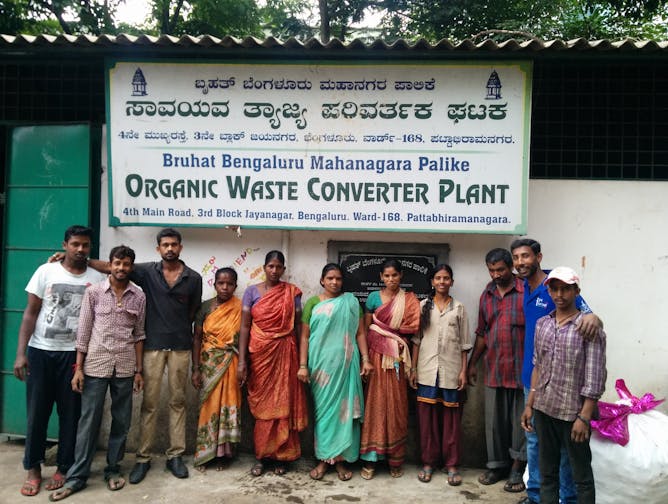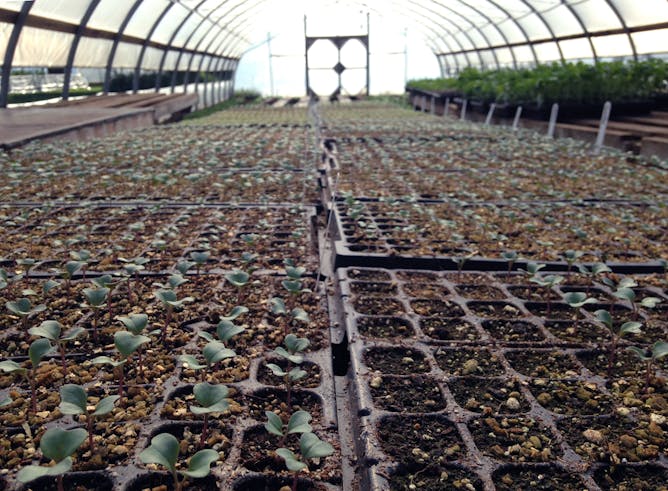|
|
|
|
Like most other conditions that require medical care, pregnancy care changed during the pandemic. In many cases, no partners or support people were permitted to come to prenatal appointments. Birth plans changed. And, unsurprisingly, anxiety increased.
Today in The Conversation Canada, Kiera O'Neil and Jennifer Khoury of Mount Saint Vincent University discuss the impact of the pandemic on pregnant mothers and their infants, both during pregnancy and in the first year of life. Their study with colleagues at McMaster University and Toronto Metropolitan University found there was clearly a toll on mental health, but the good news is, a strong support network really makes a difference.
“These results tell us that we need more, easily accessible mental health and social support services for pregnant and postpartum people and their families,” they write.
Also today:
|

|
Patricia Nicholson
Health + Medicine Editor
|
|

Results of a new study show the need for more, easily accessible mental health and social support services for pregnant and postpartum people and their families.
(Shutterstock)
Kiera O'Neil, Mount Saint Vincent University; Jennifer E. Khoury, Mount Saint Vincent University
Being pregnant and giving birth during the pandemic meant disruptions in pregnancy care and birth experiences, as well as detrimental effects on mental health and birth outcomes.
|

Waste management workers stand outside a waste processing plant in Bengaluru, India. By formalizing the waste collection process, the ‘I Got Garbage’ digital platform transformed waste workers into micro-entrepreneurs.
(Suchit Ahuja)
Suchit Ahuja, Concordia University; Yolande E. Chan, McGill University
To focus on sustainable development goals, platforms need to change from being exclusively focused on profits and value appropriation to perceiving themselves as public goods.
|

Canada’s proposed Consumer Privacy Protection Act prohibits online consent processes that are deceptive or misleading.
(Shutterstock)
Jonathan Obar, York University, Canada
Whether or not Bill C-27 moves companies away from deceptive design in apps and websites depends on how, and if, the Canadian government holds companies accountable for their actions.
|

Drones have allowed researchers to learn more about marine mammals.
(Jaclyn Aubin / GREMM)
Jaclyn A. Aubin, University of Windsor
Drones are a new technology that help researchers observe and record whale behaviours from a distance. But if the drones are flown too low, they change the whales’ behaviour.
|

People listen to the national anthem of Ukraine during the funeral of Yurii Kulyk, 27, in Kalynivka, near Kyiv, Feb. 21, 2023. Kulyk, a civilian who was a volunteer in the armed forces of Ukraine, was killed during a rocket attack on Feb. 15 in Lyman in the Donetsk region of Ukraine.
(AP Photo/Emilio Morenatti)
Aaron James Wendland, University of Toronto
Maintaining a functional and lively civil society in Ukraine is crucial to keeping supplies moving and keeping up the morale of the country.
|
La Conversation Canada
|

Les semis poussent dans une serre en Outaouais, Québec. C'est le moment de réfléchir à l'avenir de notre système alimentaire.
(Bryan Dale)
Bryan Dale, Bishop's University; Marianne Granger, Bishop's University; Mélodie Anderson, Bishop's University
À la lumière des changements engendrés par la pandémie, il est clair que l’autonomie alimentaire comme cadre de référence pour (ré)organiser le système alimentaire québécois n’est pas suffisante.
|

Chrystia Freeland, vice-première ministre et ministre des Finances du Canada, entourée de ses homologues des provinces, dont Éric Girard, à droite, lors d'une rencontre à Toronto, le 3 février 2023. Elle est parmi les seules femmes ministre des Finances dans le monde.
La Presse canadienne/Nathan Denette
Semra Sevi, University of Toronto
Les femmes sont sous-représentées en politique en raison de nombreux obstacles encore persistants à leur entrée.
|
Business + Economy
|
-
Richard Werner, University of Winchester
The collapse of a US bank is the latest crisis for central banks to deal with. But rather than being saviours of the global economy, what if they are actually a big part of the problem?
|
|
Culture + Society
|
-
Jenna Drenten, Loyola University Chicago
Maybe you can’t have a designer kitchen. But you can still beautify your bulk food storage.
|
|
Science + Tech
|
-
Ashleigh Elizabeth Smith, University of South Australia; Carol Maher, University of South Australia; Susan Hillier, University of South Australia
Understanding what the brain does when you’re trying to change your behaviour can help you stick with new habits – or kick old ones to the kerb.
|
|
|
|
| |
| |
| |

|
| |
| |
| |
| |
| |
| |
|
|
|
|
|
|
|